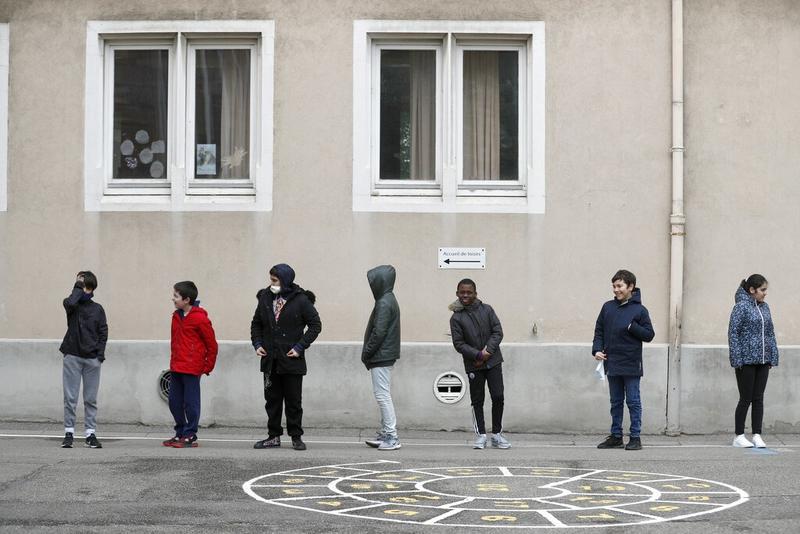 Schoolchildren wait in line to go back in their classroom at the Sainte Aurelie primary school of Strasbourg, eastern France, May 14, 2020. (JEAN-FRANCOIS BADIAS/AP)
Schoolchildren wait in line to go back in their classroom at the Sainte Aurelie primary school of Strasbourg, eastern France, May 14, 2020. (JEAN-FRANCOIS BADIAS/AP)
COPENHAGEN - World Health Organization (WHO) Regional Office for Europe on Thursday warned that "emergency fatigue" would undermine the gains in fighting against COVID-19 in the region, while the rise of infections in Eastern Europe is casting a shadow over efforts to suppress a resurgence.
Emergency fatigue threatens the precious gains we have made against this virus. Reports of distrust in authorities and conspiracy thinking are fueling movements against social and physical distancing
Dr. Hans Kluge, WHO regional director for Europe
"Emergency fatigue threatens the precious gains we have made against this virus. Reports of distrust in authorities and conspiracy thinking are fueling movements against social and physical distancing," said Dr. Hans Kluge, WHO regional director for Europe, during a regular virtual meeting held in Copenhagen.
READ MORE: As COVID-19 ebbs, EU seeks to unlock borders for summer
"Others are behaving over-cautiously, which continues to limit their social interactions and access to health services," the WHO official warned.
WHO Europe asked individuals, communities, and authorities to keep vigilant, because "mistrust, resistance to measures, and a disregard for the behavioral changes we have all made to limit COVID-19 will send us down the road none of us want to take."
Hereby, WHO Europe urged communities to "remain vigilant and protect the gains" while the policymakers should "keep attuned to what people are doing -- listen, learn and adjust measures accordingly."
According to WHO Europe, as of Thursday, there have been 1.78 million confirmed COVID-19 cases and 160,000 deaths in the region, accounting for 43 percent of cases and 56 percent of deaths globally.
ALSO READ: European coalition takes shape on coronavirus contact tracing
"Whilst the risk across all countries in the European region remains very high, it is in the east of the European region where we are seeing continued rising case counts," Kluge said.
Kluge's assessment came on the back of news that the European Region as a whole was witnessing a slow decline in COVID-19 infections, despite "black spots" in the United Kingdom, Spain and Russia that "remain among the top 10 countries around the world reporting the most cases in the past 24 hours."


